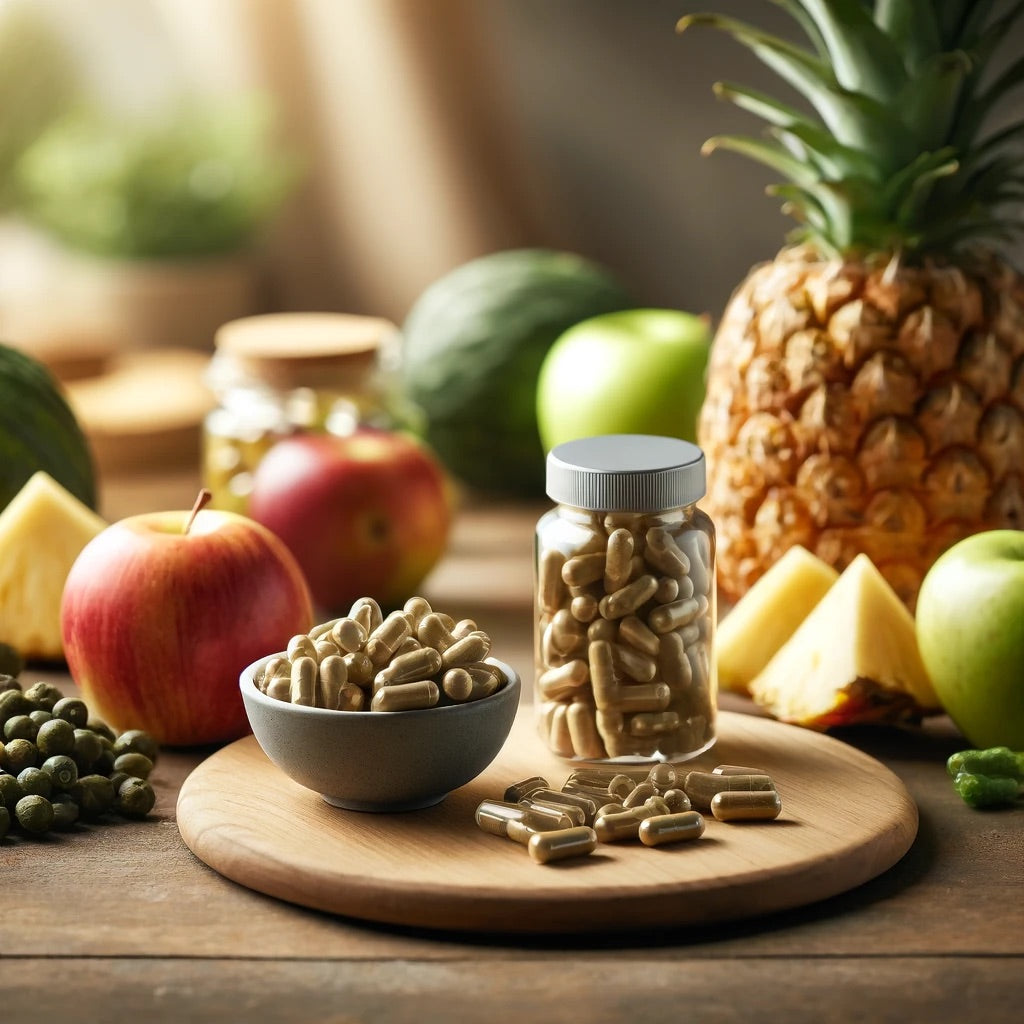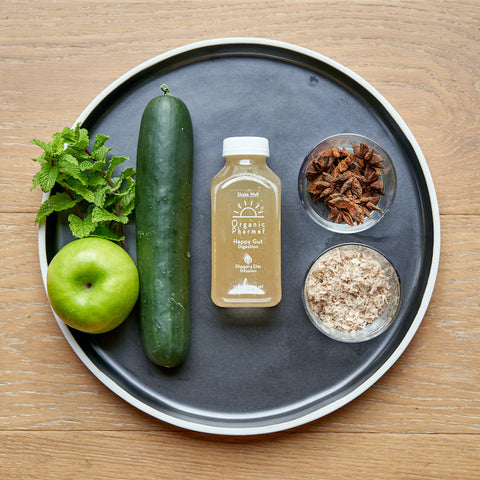
Exploring the Benefits of Quercetin and Bromelain for Aging
Share
As science progresses, our understanding of aging deepens, revealing various biological mechanisms and potential interventions. Among these, dietary supplements like quercetin and bromelain are increasingly recognized for their potential to positively impact health and longevity. Both quercetin and bromelain are exogenous substances, meaning they must be ingested as the human body does not produce them. This highlights the importance of either dietary intake or supplementation to gain their benefits. This detailed exploration examines the synergistic benefits of the phytonutrients quercetin and bromelain, their impact on the hallmarks of aging, sources in the diet, and guidelines for supplementation. We will also discuss how to recognize potential deficiencies and whether these substances are produced internally or need to be obtained through diet.
Quercetin and Bromelain: An Overview
Quercetin is a type of flavonoid found in many fruits and vegetables, known for its potent antioxidant properties. It plays a critical role in protecting cells against oxidative stress, which is implicated in the aging process and many chronic diseases. Bromelain, a complex of enzymes extracted from pineapples, complements quercetin with its anti-inflammatory and proteolytic (protein-digesting) effects. When used together, quercetin enhances the absorption and effectiveness of bromelain, making the combination more beneficial than either supplement alone.
Impact on the Hallmarks of Aging
The hallmarks of aging include various biological processes that contribute to aging and related diseases. Here's how quercetin and bromelain interact with these hallmarks:
-
Genomic Instability and Telomere Attrition: Oxidative stress can lead to damage in DNA and shorten telomeres, the protective caps on the ends of chromosomes. Quercetin's antioxidant action helps mitigate this damage, potentially slowing down the aging process at a cellular level.
-
Epigenetic Alterations: Aging is associated with changes in epigenetic information that alter gene expression without changing the DNA sequence. Quercetin may influence epigenetic mechanisms, thereby affecting gene expression related to inflammation and cell survival.
-
Loss of Proteostasis: Quercetin and bromelain contribute to maintaining protein homeostasis by promoting proper protein folding and reducing the accumulation of misfolded proteins, which is crucial for preventing diseases like Alzheimer's.
-
Deregulated Nutrient Sensing: Aging affects the body’s ability to process nutrients efficiently. Quercetin has been shown to modulate pathways involved in nutrient sensing and metabolism, which might help maintain cellular function as one ages.
-
Mitochondrial Dysfunction: Quercetin is believed to support mitochondrial health by enhancing their function and promoting the generation of new mitochondria, a process known as mitochondrial biogenesis.
Dietary Sources
Incorporating quercetin and bromelain through diet is beneficial. Quercetin is abundant in:
- Capers: the highest known concentration of quercetin.
- Onions: particularly red onions, which provide a good source of quercetin near the outer layers.
- Apples: with the skin on, as quercetin is concentrated in the skin.
- Berries: such as blueberries and blackberries, which are rich in antioxidants including quercetin.
Bromelain is found in:
- Pineapples: especially in the core, which is often discarded but is highly nutritious. Check out our Happy Gut Botanical Beverage which contains bromelain from pineapple!
Supplementation Guidelines
For individuals considering adding quercetin and bromelain to their dietary regimen, health professionals often recommend a dosage of approximately 500 mg of quercetin daily. This dosage has been found effective in numerous studies for harnessing the antioxidant and anti-inflammatory benefits of quercetin. For bromelain, the suggested daily intake typically ranges from 100 mg to 200 mg, depending on the specific health objectives and the concentration of the product. It is important to note that these dosages can vary based on factors such as age, overall health, and the presence of any chronic conditions.
Taking quercetin and bromelain together is advised because they have synergistic effects that enhance each other’s benefits. The enzyme activity of bromelain improves the absorption of quercetin into the bloodstream, making it more effective. This combination not only maximizes the anti-inflammatory properties of both substances but also enhances their overall effectiveness in combating oxidative stress and supporting immune function.
Additionally, when supplementing with quercetin and bromelain, it is generally recommended to take them on an empty stomach. This practice increases their absorption and ensures that the bromelain acts systemically throughout the body rather than focusing on breaking down proteins in the food within the stomach.
Recognizing Deficiencies and Supplementation Needs
While there is no direct test to measure quercetin or bromelain levels, signs of chronic inflammation or frequent illness may indicate low levels of these or other antioxidants and anti-inflammatory agents. A diverse diet rich in fruits and vegetables generally provides sufficient quercetin, but supplementation may be beneficial for those with specific health conditions or dietary limitations.
Quercetin and bromelain, through their anti-inflammatory, antioxidant, and proteolytic properties, offer promising benefits in combating the aging process. By integrating these supplements into a balanced diet, one can potentially delay or mitigate some of the biological impacts of aging. As always, it is prudent to consult healthcare professionals before beginning any new supplement regimen, ensuring it complements one’s specific health profile and dietary needs. This integrative approach could lead not only to a longer life but also to one that is significantly healthier.

